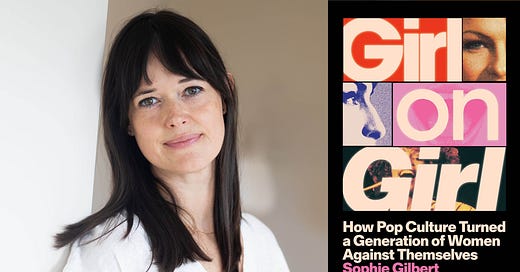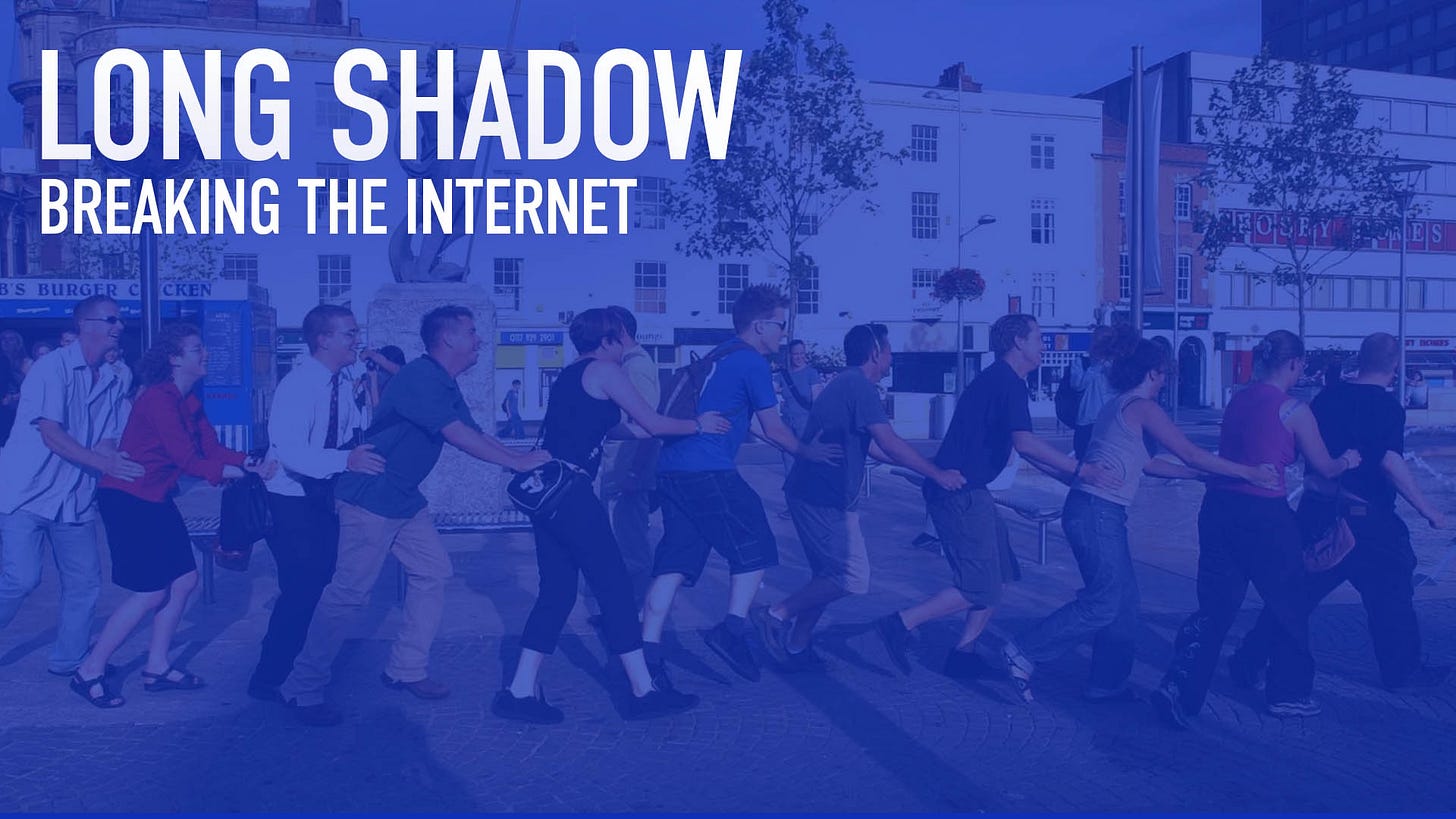Sophie Gilbert’s steamy-smart summer reading list: Books and essays about sex and desire in culture
Required reading from The Atlantic staffer and author of 'Girl on Girl,' who explores how 21st century pop-culture convinced young women that sex, youth, and attention were the true paths to power.
Sophie Gilbert couldn’t get away from the topic. It was 2021 and The Atlantic writer and culture critic found herself considering again and again, “what growing up in hostile and often women-hating environments does to girls — especially the ones who go on to make art out of their experiences.”
Roe v. Wade being overturned the following year left Gilbert wanting to figure out, at least in part, what had changed, leaving 21st-century women feeling powerless. She turned to the early 2000s for answers.
Her research turned into her book, Girl on Girl: How Pop Culture Turned a Generation of Women Against Themselves, which Gilbert said she thinks of as “something like historical criticism — a mix of excavating the recent past and analyzing it.”
“I knew I was interested in reconsidering a lot of the cruel and really misogynistic culture of that decade, but it suddenly felt much more urgent to try to understand what we absorbed during that era,” she says.
Depth Perception asked Gilbert to suggest articles and books by other authors that, combined with Girl on Girl and her Atlantic pieces (see the further reading list below), would add up to a perfect poolside deep dive into the ways in which sex and desire are portrayed in popular culture. The 2022 finalist for a Pulitzer Prize in criticism happily obliged. —Jenna Schnuer
“What Do Women Want?” by Daniel Bergner (January 22, 2009)
“This was a feature in The New York Times Magazine published in 2009, and it considers a researcher at Queen's University in Toronto who's trying to more fully understand desire and arousal in women. Her studies are baffling in some ways because the subject is so understudied and so unpredictable — what turns women on and what they report being turned on by are often totally different things. Another researcher in a related field talks about how, often, desire for women is informed by ‘the wish to be the object of erotic admiration and sexual need,’ which was interesting to me given my own research on this era where women were relentlessly objectified.”
The Right to Sex, by Amia Srinivasan (September 21, 2021)
“This book came out of an essay Srinivasan, a professor of philosophy at Oxford, wrote for the London Review of Books in 2018, considering the so-called ‘incel’ movement and the conundrum of male sexual entitlement. It's brilliant, measured, and insightful on everything from consent and #MeToo, to the politics of who is allowed to be desirable and to desire in turn.”
Shooting her way through journalism’s glass ceiling

Virginia Kraft was among the most important sports journalists of her time. A pioneering adventure writer who was deadly with a rifle, she chiseled early cracks into publishing's male-dominated world. She was also a competitive skier who raced sailboats and hot-air balloons, hunted with kings, and drank with Hemingway. So why hasn't anyone heard of her?
In The Catch, globetrotting adventure and environmental journalist Emily Sohn tells a complicated story of a woman who did not fit into simple boxes. A multimedia profile published by Long Lead, the piece was named “Best Individual Editorial Feature” by the Webby Awards, won the 2024 Newhouse Mirror Award for Best Profile, and was included in Triumph Books’s The Year's Best Sports Writing 2024. Read The Catch today.
Girlhood and The Dry Season by Melissa Febos (March 30, 2021 and June 3, 2025)
“Technically, yes, these are two books but I love them as two parts of the same project: One half where Febos considers how the darkness of girlhood and adolescence shaped her, and another where she steps back from love and sex for an entire year to better understand and rewrite her relationship with them. She's just the most gorgeous, rigorous, fearless writer.”
“Uses of the Erotic: The Erotic as Power” by Audre Lorde (August 25, 1978)
“This essay was written by Lorde as an address to the Berkshire Conference on the History of Women in 1978, and it makes a rousing case for women to reclaim the erotic as a kind of sustaining, spiritual life force: a source of power, meaning, and resistance that we're too often conditioned to reject out of shame or fear. Only by accepting ourselves as erotic beings, she argues, can we truly know ourselves and connect with each other.” Listen to Audre Lorde read “Uses of the Erotic” here.
“Film Bodies: Gender, Genre, and Excess” by Linda Williams (Film Quarterly Vol. 44, No. 4, Summer, 1991)
This 1991 article by Williams, a professor of film studies and a brilliant critical thinker on the subject of porn as a visual medium, considers three types of filmmaking that Williams calls the body genres, all intended to elicit a physical response in the person watching. Horror, she argues, provokes fear and disgust; melodrama makes people cry; pornography turns them on. And all three "address persistent problems in our culture, in our sexualities, in our identities."
Further reading from Sophie Gilbert
“Money Is Ruining Television” (The Atlantic, June 7, 2025)
“What Porn Taught a Generation of Women” (The Atlantic, May 2025
“Reclaim Imperfect Faces” (The Atlantic, April 5, 2025)
“Kamala Harris and the Threat of a Woman’s Laugh” (The Atlantic, July 24, 2024)
“What Madonna Knows” (The Atlantic, October 10, 2023)
Listen up! ‘Connect’ with the latest episode of ‘Long Shadow’
The early 21st century didn’t only empower women, it also empowered billions of people worldwide as they found new connections online. Episode two of Long Lead’s podcast Long Shadow: Breaking the Internet shows how at the dawn of the new millennium, the web yielded powerful tools for organizing. From the 9/11 hijackers to flashmob pranksters to activists, it puts power in the hands of the people, for better and for worse. Listen to episode two, “Establishing Connection” wherever you get your podcasts.









